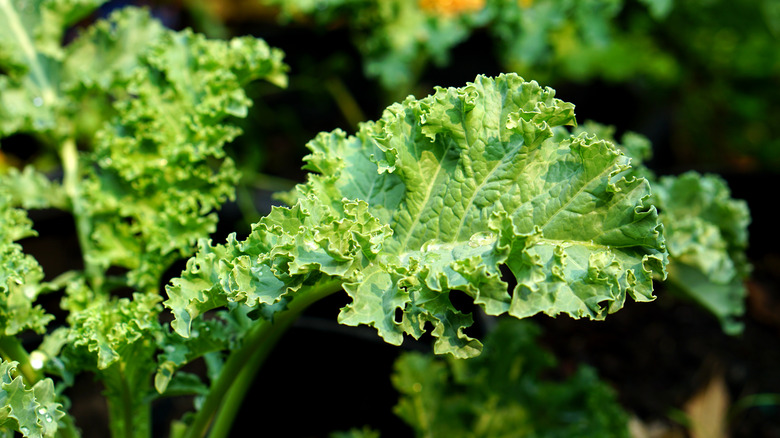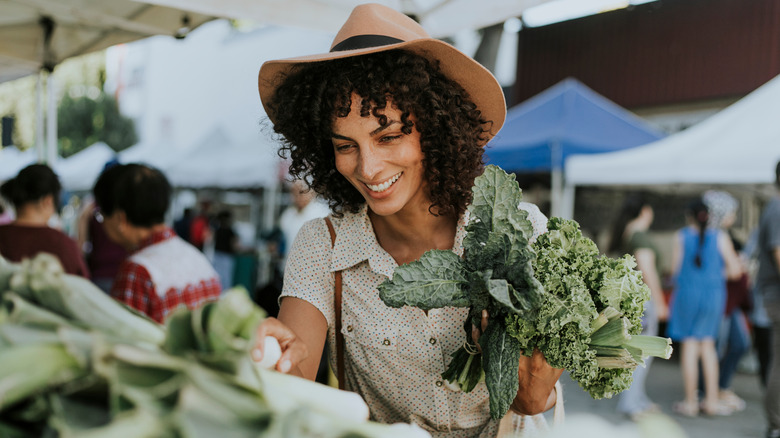When You Eat Too Much Kale, This Is What Happens To You
Kale is a dark, leafy green and popular cruciferous vegetable from the cabbage family. Considered a healthy and nutrient-dense superfood, kale is low in calories, packed full of fiber, as well as many important vitamins and minerals (via Women's Health).
For example, a single cup of kale contains only 35 calories and is a great source of calcium, potassium, and magnesium. "It's high in vitamins C and K, as well as antioxidants, such as beta carotene," registered dietitian Lauren Manganiello told Women's Health. Kale is also rich in iron and fiber, containing around 2.5 grams of fiber per serving.
As a result, eating kale is a great way to get in your daily nutrients and help keep you feeling full for longer. However, consuming too much can potentially have a negative impact on your health. For instance, consuming an excessive amount of kale can take a toll on your gastrointestinal system, causing gas, bloating, constipation, and diarrhea. What else can kale do to your body?
Eating too much kale may affect your thyroid
In some cases, eating too much kale might have some more worrisome consequences. As it turns out, consuming an excess of kale may actually impair your thyroid function (via Insider). That's because kale contains a compound known as progoitrin, which can interfere with thyroid hormone synthesis and disrupt the uptake of iodine, making it difficult for your thyroid to produce the hormones it needs to function. This can lead to a fluctuation in your weight and blood sugar levels.
However, this shouldn't be a problem for you unless you have a thyroid disorder or iodine deficiency. "Here's the thing, if you have an iodine or selenium deficiency that you are aware of and have been tested for, you are more vulnerable to being affected by these veggies," Daphne Javitch, a holistic nutritionist and founder of Doing Well, told Well+Good. "But it would take a lot of them [to be detrimental]."
For the most part, the benefits of kale outweigh the risks, but it's still best not to overdo it (via Women's Health). That's why Manganiello recommends eating no more than 1-2 servings of kale per day.


